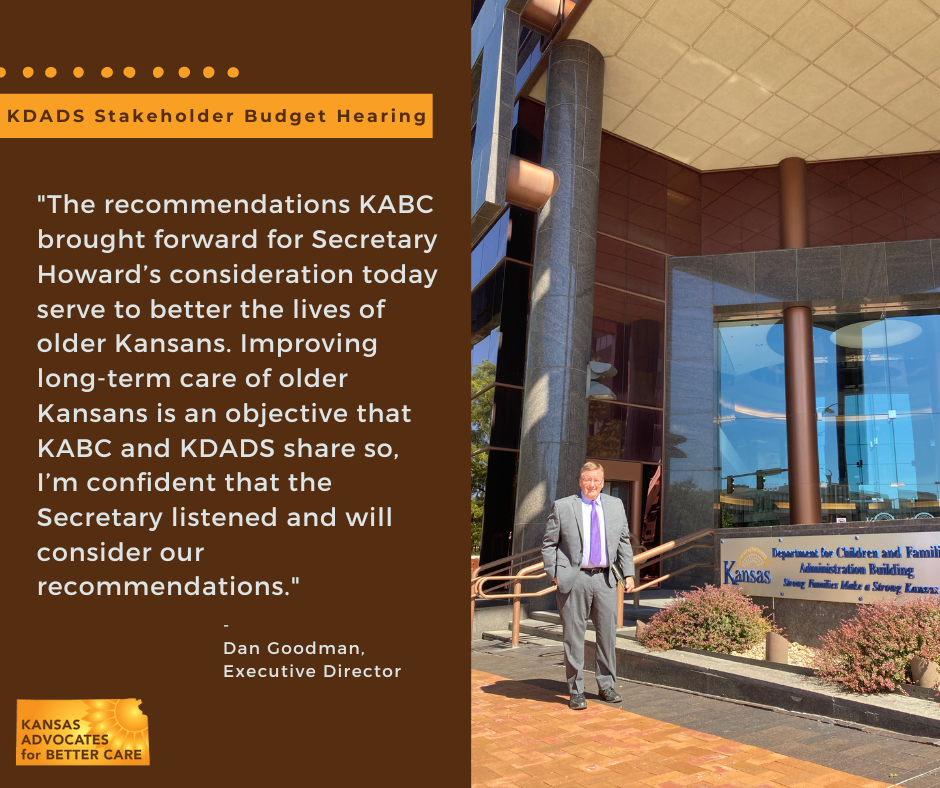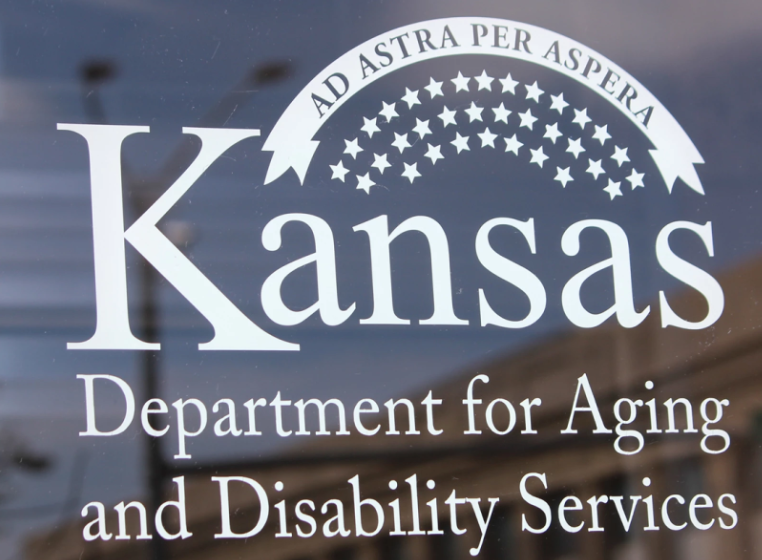KABC Budget Recommendations for FY 2023
August 10, 2022
KABC Executive Director Dan Goodman had the opportunity to present FY 2023 budget recommendations to Kansas Department for Aging and Disability Services (KDADS) leadership.


Dan Goodman, KABC Executive Director, recently provided testimony to both the Kansas Department for Aging and Disability Services (KDADS) and the Kansas Department of Health and Environment (KDHE) during their Fiscal Year 2026 budget hearings. Our message was clear: Kansas must invest in systems that protect the dignity, independence, and well-being of older Kansans. Key Recommendations from KABC Protect Access to In-Home Services • Projected shortfalls of $27M in FY26 and $70M in FY27 threaten the HCBS Frail Elderly Waiver. • Without funding, older Kansans may face a waitlist for services, leading to premature nursing home placement. Strengthen Care Coordination • Frail Elderly, Physically Disabled, and Brain Injury waiver recipients currently lack dedicated case management. • KABC urged implementation of the long-overdue $20M Community Care Coordination Service. Improve Oversight & Resident Protections (KDADS) • Surveyor vacancies are near 50%, delaying inspections and weakening resident protections. • We called for wage increases and innovative staffing models to close gaps in oversight. Increase the Personal Needs Allowance • Nursing home residents in Kansas receive only $62/month for personal expenses. • KABC supports raising this allowance—closer to the $70 national average—and tying it to cost-of-living adjustments. Continue the Statewide Senior Resource Guide (KDADS) • KABC requested $150,000 to maintain and distribute the statewide guide annually. • This investment ensures older Kansans have access to accurate, trusted information on care and services. Why It Matters By 2030, more than 20% of Kansans will be age 65 or older. Budget decisions made today will directly impact whether older Kansans can age with dignity, safety, and independence. Read KABC’s full testimonies to KDADS here and KDHE here .
Steve shares his journey through multiple long-term care facilities after a major surgery, describing repeated medication errors, poor food quality, untrained staff, and systemic neglect. His story highlights how understaffing, weak oversight, and profit-driven management leave residents without advocacy and dignity.




